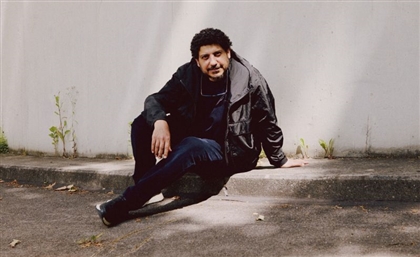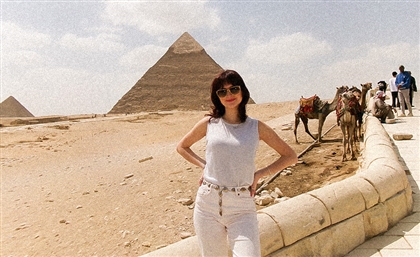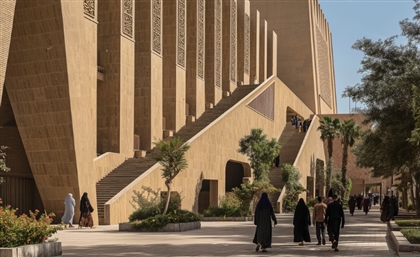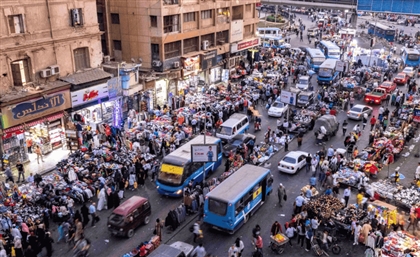From Venice to Alexandria: Wael Shawky’s 'Drama 1882' Returns Home
Art and history collide in Wael Shawky’s 'Drama 1882', making its Egyptian premiere at Bibliotheca Alexandrina.
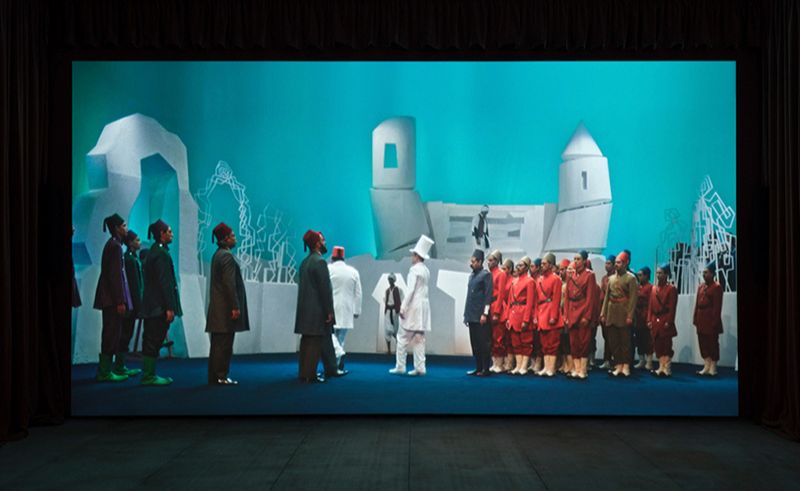
From Venice to Alexandria, acclaimed Egyptian artist Wael Shawky brings his Venice Biennale film ‘Drama 1882’ to Egypt, with a public preview on December 4th at Bibliotheca Alexandrina. Like much of Shawky’s work, ‘Drama 1882’ delves into historical events through the lens of contemporary culture. Originally created for his solo exhibition in the Egyptian Pavilion, the film makes its Cairo debut on December 2nd in a private preview before travelling to Alexandria.
In this CairoScene interview, Shawky reflects on his work and philosophy, uncovering the layered depths of history. Like a vast, treacherous ocean, history brims with betrayals and wars, its cycles repeating endlessly. Through Shawky’s lens, past and present intertwine seamlessly, revealing blurred boundaries and profound connections to our present.
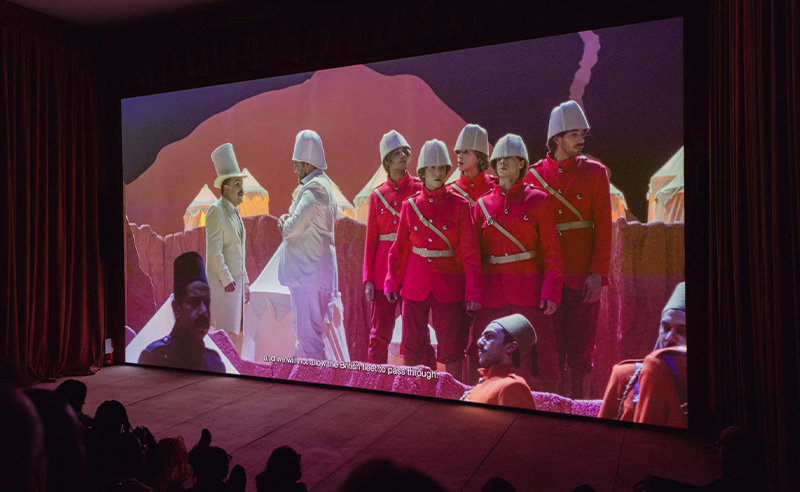
“History, in the end, is a form of creation, and I see it as a space for reflection. We tend to frame it with clear beginnings and endings, but that's a false notion. I prefer to stage history, leaving space for perspective rather than presenting it as a fixed truth,” Wael Shawky tells CairoScene.
Born in Alexandria, Shawky spent part of his childhood in Makkah, a starkly different world from his coastal hometown. In the heart of the desert, as dreams of modernization began to take root, he observed the fascinating contrasts between the two cities, each representing distinct yet interwoven cultural and social landscapes.
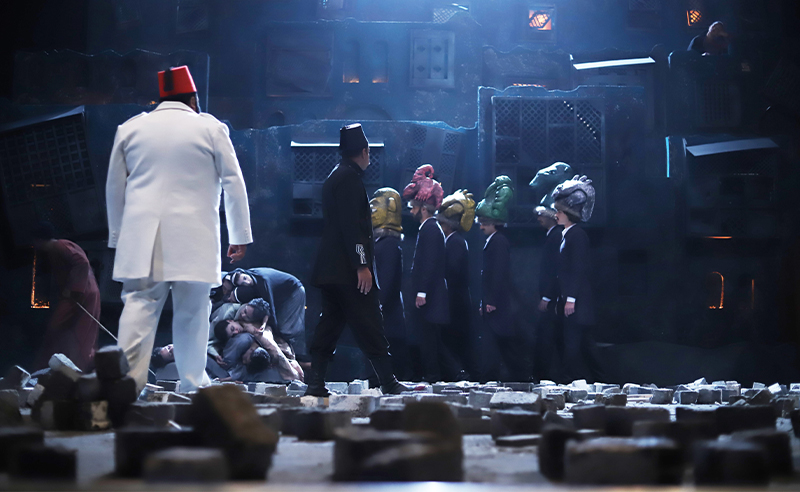
"A big part of my work stems from my childhood - those formative years when I developed a passion for the dream of societies striving to evolve, even in ways that might seem delusional," Shawky says.
Among his celebrated creations is the ‘Cabaret Crusades’ trilogy - ‘The Horror Show File’ (2010), ‘The Path to Cairo’ (2012) and ‘The Secrets of Karbala’ (2015). In these films, Shawky used marionettes and puppets to narrate the medieval Crusades from the Arab world’s perspective, offering a nuanced and imaginative retelling of history.
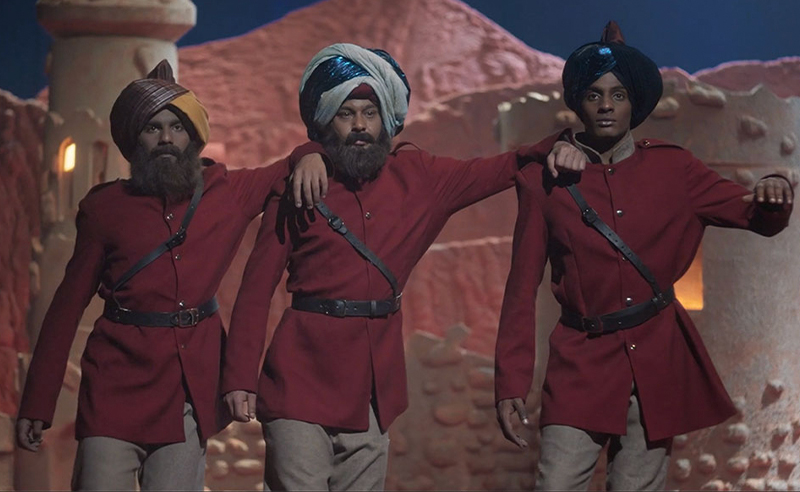
"‘Cabaret Crusades’ began with a story I read by Amin Maalouf, ‘The Crusades Through Arab Eyes’, which explores the timeline of events through Arab historians like Ibn Kathir, Ibn al-Qalanisi, Usama ibn Munqidh, and others,” Shawky explains. “I drew directly from these original sources to craft the narrative."
Each chapter of the trilogy comes to life through its own unique marionettes. For the first, Shawky repurposed 200-year-old puppets borrowed from Turin’s Marionette Museum. The second introduced crafted ceramic marionettes, meticulously made using ancient French Clermont techniques. The final chapter featured delicate Murano glass puppets. Each material was thoughtfully chosen to deepen the connection between medium and narrative, weaving history into every detail.
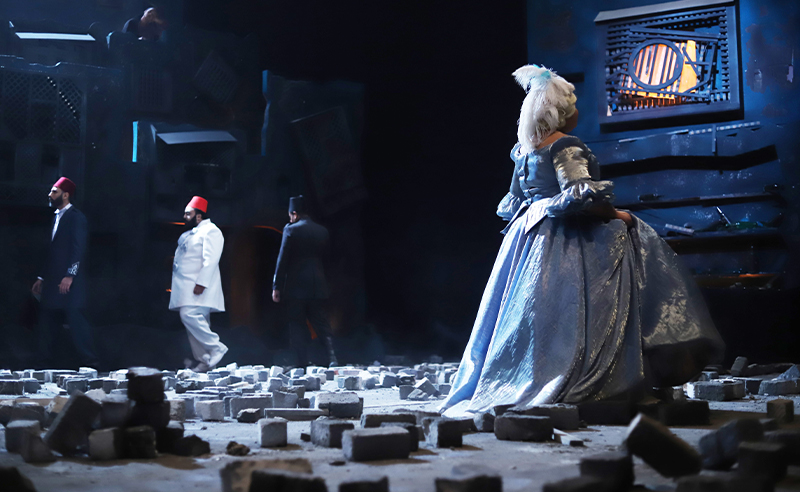
“The idea of using marionettes came to me as I read the story,” Shawky says. “Each character seemed stripped of their will, guided by greater forces - whether divine, economic, or driven by power. The marionette captured this loss of autonomy, a puppet moved by unseen hands.”
From string-held marionettes to Egyptian actors, ‘Drama 1882’ marks a departure for Shawky, reintroducing human emotion and drama as central elements of his storytelling. The film delves into the events that set the stage for Egypt’s 72 years of British occupation.
The story unfolds in Alexandria, where a Maltese man, under the protection of British forces, drunkenly wanders the city’s bars. Guiding him through the night is an Egyptian man, a ‘Hammar’, driving him around on his donkey. But the revelry takes a dark turn; when the Maltese refuses to pay him fairly, a fight breaks out, ending with the Egyptian’s death.
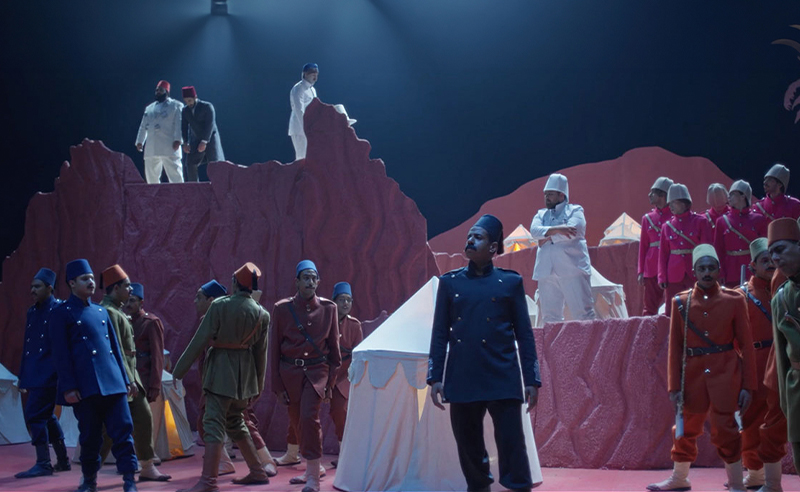
What begins as a minor altercation quickly escalates. Accusations of rebellion against Ahmed Urabi ripple through the city, his restoration of Alexandria’s forts framed as a coup d’état. British warships arrive, poised for intervention. Soon, a bombardment devastates Alexandria, the chaos paving the way for an invasion that would lead to Egypt’s colonisation - a conflict born of a single, fateful encounter.
“This story holds immense significance as it represents a turning point, not only for Egypt but for the entire region. This colonisation ignited a dramatic shift in the course of history,” Shawky explains. Blurring the lines between fact and fiction, Shawky masterfully weaves together an array of techniques - from intricate set designs to haunting Arabic vocals in the soundtrack - meticulously guiding each actor’s movement to conjure a surreal, dreamlike performance.
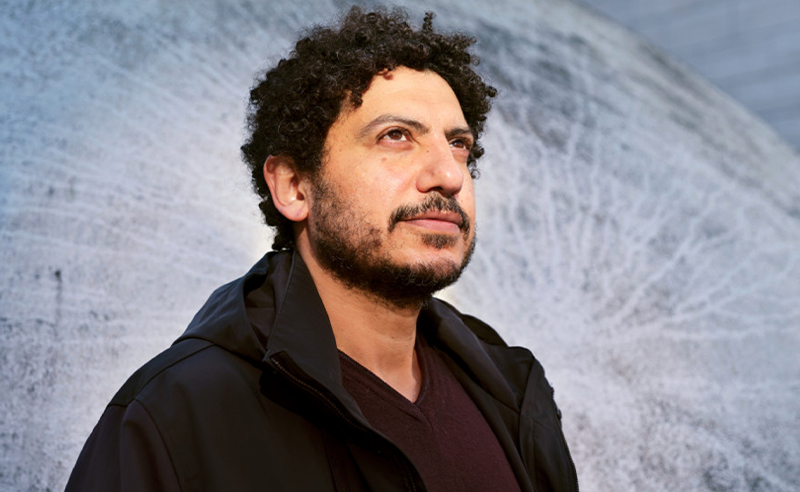
Wael Shawky is no stranger to the biennial circuit, having exhibited his work at major events such as the Lahore Biennale (2020), Istanbul Biennale (2015), and Sharjah Biennale (2013), to name a few. He is also the founder of Mass Alexandria, an art school and performance space that fosters creativity and experimentation.
- Previous Article Saudi Artist Nujood Al-Otaibi on Overcoming Disability Through Art
- Next Article Six Unexpected Natural Wonders to Explore in Egypt
Trending This Week
-
Dec 27, 2025
-
Dec 23, 2025








